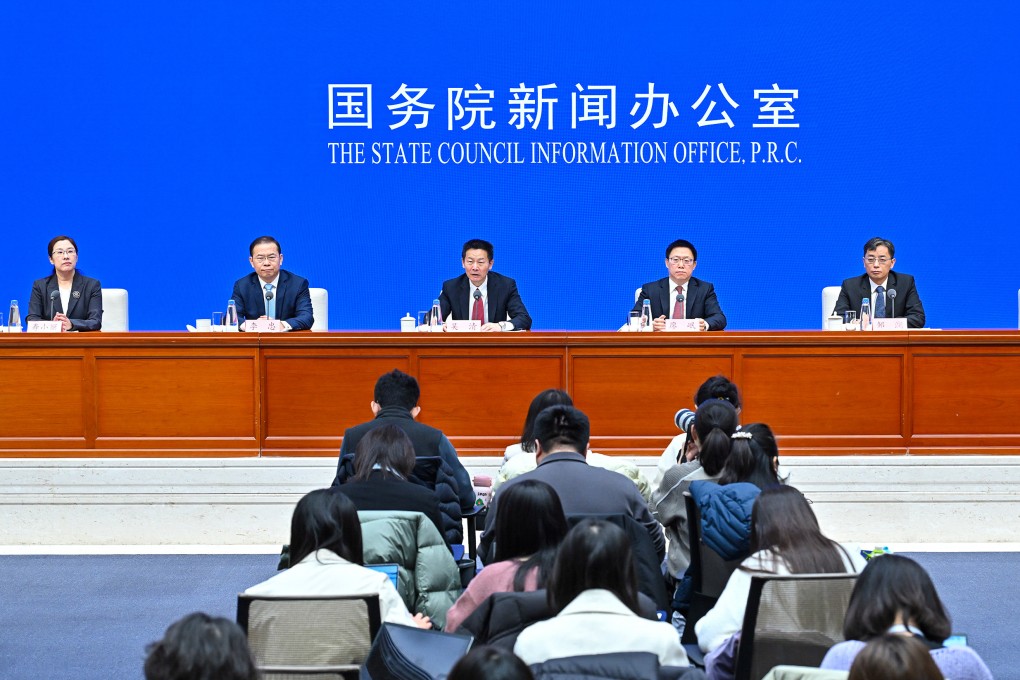China channels pension, insurance funds into nation’s A shares to anchor stock market
Starting this year, 30 per cent of the annual insurance premium from new policies will be put into yuan-denominated A shares, regulator Wu Qing said

China’s financial regulators are channelling pension, insurance and mutual funds into the nation’s equities to anchor and stabilise Asia’s largest capital market, driving a benchmark stock index to its biggest intraday gain in more than a week.
Starting this year, 30 per cent of the annual insurance premium from new policies will be put into yuan-denominated A shares, said Wu Qing, chairman of the China Securities Regulatory Commission, during a press conference in Beijing. Mutual funds would be directed to invest more, with the allocations rising by 10 per cent every year over the next three years, he added.
At least 100 billion yuan (US$13.8 billion) of insurance funds will be set aside for the stock market in a pilot programme within the first six months, according to Xiao Yuanqi, vice-chairman of the National Financial Regulatory Administration. Half of that will be approved before the Lunar New Year that commences on January 29, he added.
The Ministry of Finance meanwhile is revising the investment management system for pension funds, aiming to optimise investment ratios and enhance flexibility, according to Deputy Finance Minister Liao Min.
The directives could deliver a much-needed tonic to the capital market plagued by a lacklustre economy, a prolonged property slump and tepid corporate earnings. The CSI 300 Index has fallen about 30 per cent from a peak in 2021, while allocations in Chinese stocks by global funds are at the lowest in five years, according to Goldman Sachs.

“The government is on the right track by trying to introduce long-term capital into the market,” said Wang Qi, chief investment officer of UOB Kay Hian. “It can help rebuild confidence and create the moneymaking effect for further capital inflows.”
